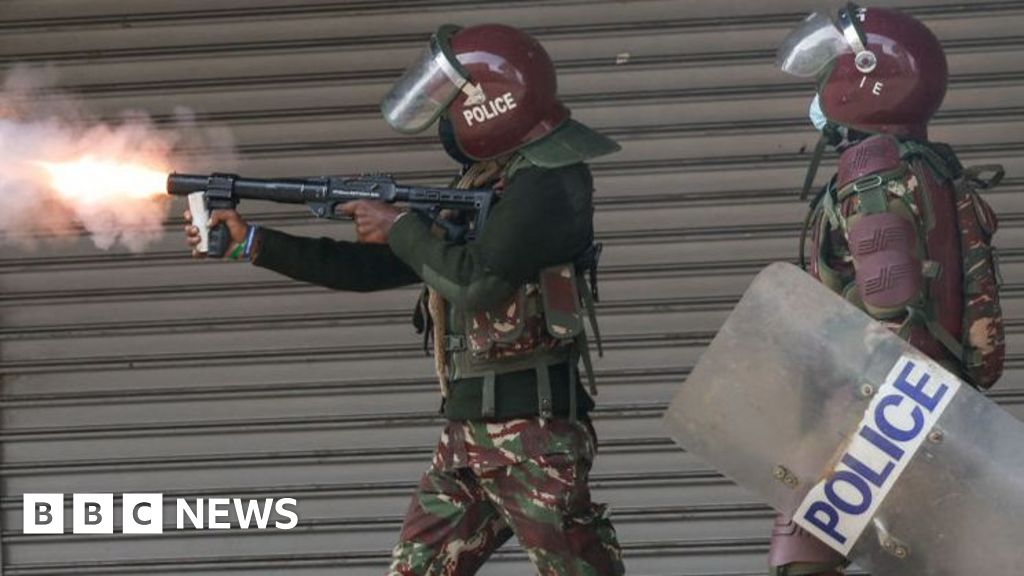- author, Anne Soy & Ian Wafra
- role, BBC News, Nairobi
Kenya’s police chief, Japhet Coombe, has resigned after weeks of violent protests against proposed tax increases left more than 40 people dead.
Rights groups have accused police of shooting dozens of protesters, several of them fatally, and abducting or arbitrarily arresting hundreds more.
The resignations came a day after President William Ruto fired most of his cabinet following pressure from a protest movement organised mainly online by young Kenyans.
Two weeks ago, protesters stormed Parliament shortly after a controversial finance bill was passed by Parliament, and police responded by opening fire on demonstrators in the street.
President Ruto later withdrew the bill but demonstrators are not convinced and are planning further protests, calling for the president to step down and demanding further reforms.
The Kenyan presidency announced that Deputy Commissioner of Police Douglas Kanja would take over running the police force with immediate effect.
Coombe’s resignation has been welcomed by Kenyans, but police officers filmed opening fire on protesters remain at large.
last week An unprecedented debate about XIn a statement on Twitter, President Ruto assured Kenyans that action would be taken against the officers once he received video evidence. It is unclear whether this has been carried out.
At least 11 bodies, some of which had been dismembered, were found in a rubbish dump in the capital, Nairobi, on Friday after residents reported the incident. It is not yet clear whether their deaths have any connection to the protests.
The president is under pressure
Amid the biggest crisis of his two-year presidency, President Ruto met with opposition leader Raila Odinga earlier this week and announced plans to set up a 150-person dialogue committee to find solutions to the country’s problems.
After firing key cabinet members, including the attorney general, on Thursday, the president said he would consult widely to form a broad-based government.
The proposed tax measures are aimed at reducing the country’s debt burden of more than $80 billion (£63 billion) – about 60 percent of Kenya’s revenue goes towards servicing the debt.
Additional reporting by Natasha Booty
More about the anti-tax protests in Kenya:
Image source, Getty Images/BBC


